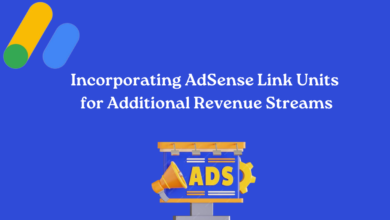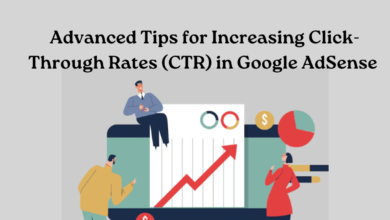How to Handle AdSense Policy Violations and Appeals.

Handling AdSense policy violations and appeals is crucial for website owners and publishers who rely on Google AdSense as a revenue stream. AdSense policies are designed to maintain a fair and safe advertising ecosystem, but violations can occur unintentionally. Understanding how to address violations and navigate the appeals process is essential for maintaining a healthy AdSense account.
AdSense Policies:
Google AdSense enforces policies that publishers must follow so they can continue using the platform.
These policies cover various aspects of website content, ad implementation, and user experience. Some key policies include:
1. Content Policies:
AdSense prohibits the placement of ads on websites with content related to violence, adult material, copyrighted material, illegal activities, or deceptive content.
2. Ad Placement Policies:
Publishers must adhere to guidelines regarding ad placement, including the number of ads per page, proximity to prohibited content, and implementation of ads on non-content pages.
3. Invalid Clicks and Impressions:
Click fraud, including clicking on your own ads or encouraging others to do so, is strictly prohibited. Publishers are also responsible for monitoring and preventing invalid clicks and impressions on their websites.
4. Ad Implementation:
AdSense ads must be implemented according to Google’s specifications, including correct ad code placement, proper ad formatting, and compliance with responsive ad requirements.
Policy Violations:
When a violation occurs, Google typically notifies the publisher via email and may take actions such as disabling ads on specific pages or suspending the AdSense account. Common violations include:
1. Content Violations:
Publishing content that violates AdSense content policies, such as adult content or copyrighted material, can result in policy violations.
2. Click Fraud:
Engaging in click fraud, whether intentionally or unintentionally, is a serious violation of AdSense policies and can lead to account suspension.
3. Invalid Traffic:
High levels of invalid traffic, such as bot traffic or excessive click-through rates, may trigger policy violations.
If a publisher believes that a policy violation was made in error or wishes to appeal an enforcement action, they can submit an appeal through the AdSense account interface. The appeals process typically involves providing additional information or clarifications regarding the violation.
Tips for Handling Violations and Appeals:
1. Review Policies:
Familiarize yourself with AdSense policies to ensure compliance and prevent violations.
2. Monitor Traffic:
Use tools such as Google Analytics to monitor website traffic and identify any unusual patterns that may indicate invalid traffic.
3. Respond Promptly:
If you receive a policy violation notification, address the issue promptly and take corrective action to prevent further violations.
4. Provide Relevant Information:
When submitting an appeal, provide relevant information and documentation to support your case and demonstrate compliance with AdSense policies.
5. Be Patient:
The appeals process may take time, so be patient and follow up if necessary to ensure your appeal is being addressed.
By understanding AdSense policies, monitoring website traffic, and effectively navigating the appeals process, publishers can effectively handle policy violations and maintain a healthy AdSense account.
To know more about Google AdSense, please check www.intogeeks.com.




